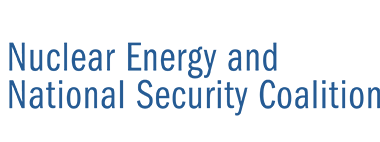The increasing demand for electricity available 24/7/365 makes nuclear an attractive and reliable energy source – and a crucial component of maintaining U.S. energy dominance. Rising demand from energy-intensive technologies such as AI, data centers, and advanced manufacturing underscores the need for reliable, always-on electricity that supports innovation, competitiveness, and economic strength at home.
A strong domestic nuclear sector is also a foundation for America’s global leadership. Without it, the United States risks falling behind competitors that approach nuclear technology development and deployment more strategically. Strengthening the industry at home is essential not only to meet U.S. energy needs but also to ensure that new-to-nuclear countries look to the United States – not Russia or China – for partnership and technology.
As the United States navigates growing geopolitical challenges, sustained civil nuclear cooperation with allies and partners will be essential. By investing in a vibrant domestic nuclear sector, the United States can bolster its energy security, advance global nonproliferation, and project enduring leadership in an increasingly competitive world.
National Security Benefits of a Strong Domestic Nuclear Energy Sector
- A strong civil nuclear export sector creates deep and long-lasting relationships between the United States and partner nations across important areas that advance America’s national security interests including nonproliferation, nuclear safety, and physical and cyber security. Ensuring an active role in the global market for nuclear reactors, technology, and fuel preserves U.S. influence over nonproliferation and nuclear safety standards is not diminished.
- International competitiveness is inextricably linked to maintaining a strong domestic nuclear program. While the United States developed the modern commercial nuclear industry over six decades ago, China and Russia now drive much of global expansion, with approximately 63 reactors under construction worldwide, 29 of which are in China. Many new-to-nuclear countries express interest in working with the United States, but find that U.S. government and industry are often absent from early market engagement – while Russia and China are aggressively marketing their designs and partnership packages. Failing to maintain U.S. leadership risks missing a global opportunity estimated at over half a trillion dollars and ceding influence in emerging nuclear markets.
- Our nation’s 94 nuclear power plants are among the most robust elements of U.S. critical infrastructure, offering a level of protection against natural and adversarial threats that goes far beyond most other elements of our nation’s electrical grid. The Department of Defense depends on the nation’s grid to power 99 percent of its installations, meaning large scale disruptions affect the nation’s ability to defend itself.
- Nuclear energy is by far our nation’s largest source of clean, reliable electricity. Its steady output and resilience make it a cornerstone of our energy security, helping protect against disruptions that could affect critical infrastructure.

